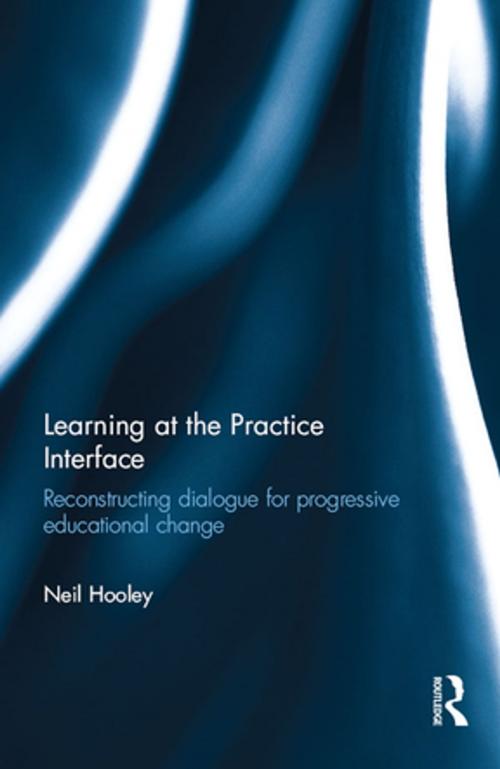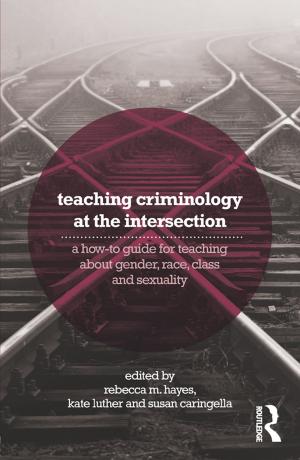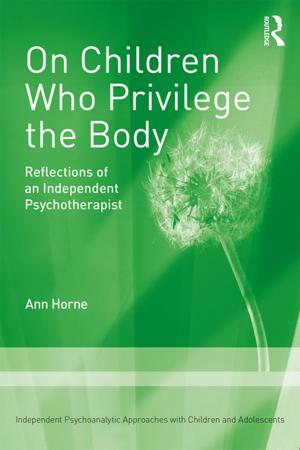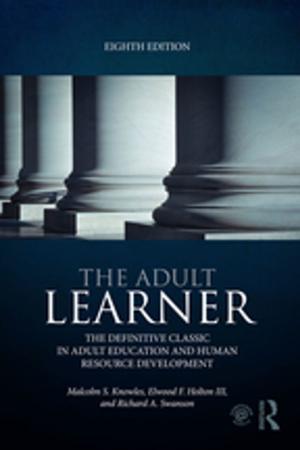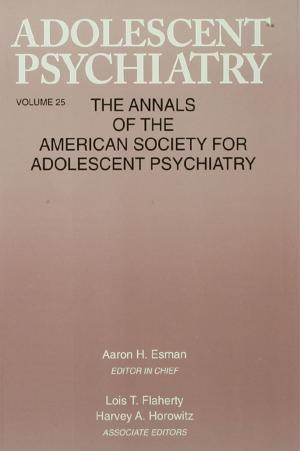Learning at the Practice Interface
Reconstructing dialogue for progressive educational change
Nonfiction, Social & Cultural Studies, Social Science, Sociology, Reference & Language, Education & Teaching| Author: | Neil Hooley | ISBN: | 9781317530336 |
| Publisher: | Taylor and Francis | Publication: | April 24, 2015 |
| Imprint: | Routledge | Language: | English |
| Author: | Neil Hooley |
| ISBN: | 9781317530336 |
| Publisher: | Taylor and Francis |
| Publication: | April 24, 2015 |
| Imprint: | Routledge |
| Language: | English |
This book investigates professional practice at the interface of sociology and epistemology for progressive educational change. It suggests that orthodox sociology and sociology of education have not sufficiently analysed contemporary educational situations due primarily to the strength of the economic and educational influence of neoliberalism. In drawing upon key aspects of the work of Dewey, Freire, Bernstein and Bourdieu, a new reflexive sociology of knowledge is proposed that could potentially revolutionise public schooling and emancipate learning. This critical reconceptualisation of curriculum and teaching, as well as the democratic inclusion of all children into structures of privileged and community knowledge, opens up a new epistemological stage in the sociology of education worldwide.
In confronting the contradiction between social marginalisation and educational expectations, Learning at the Practice Interface explores new approaches to education systems and knowledge production. Part A raises questions regarding knowledge, pedagogy and social justice that are central to schooling and which support values weakened by neoliberalism. These values include democracy, equity, community collaboration and deference towards knowledge and culture not dependent on wealth and status. Part B explores practical issues related to how knowledge is engaged in the school curriculum. This discussion goes to the heart of learning at the practice interface and suggests thatthe lack of epistemological strategies based on sociological description has created serious estrangement from school knowledge for large numbers of students. Part C discusses a critical view of knowledge in relation to research, teaching and learning and the education profession generally. The need for a new reflexive sociology of knowledge is proposed to guide educational dialogue and action such that connections can be made between progressive sociology and epistemology in the interests of all children.
This book will be of interest to academics and researchers in the Sociology of Education, Teacher Education, and Education Reform.
This book investigates professional practice at the interface of sociology and epistemology for progressive educational change. It suggests that orthodox sociology and sociology of education have not sufficiently analysed contemporary educational situations due primarily to the strength of the economic and educational influence of neoliberalism. In drawing upon key aspects of the work of Dewey, Freire, Bernstein and Bourdieu, a new reflexive sociology of knowledge is proposed that could potentially revolutionise public schooling and emancipate learning. This critical reconceptualisation of curriculum and teaching, as well as the democratic inclusion of all children into structures of privileged and community knowledge, opens up a new epistemological stage in the sociology of education worldwide.
In confronting the contradiction between social marginalisation and educational expectations, Learning at the Practice Interface explores new approaches to education systems and knowledge production. Part A raises questions regarding knowledge, pedagogy and social justice that are central to schooling and which support values weakened by neoliberalism. These values include democracy, equity, community collaboration and deference towards knowledge and culture not dependent on wealth and status. Part B explores practical issues related to how knowledge is engaged in the school curriculum. This discussion goes to the heart of learning at the practice interface and suggests thatthe lack of epistemological strategies based on sociological description has created serious estrangement from school knowledge for large numbers of students. Part C discusses a critical view of knowledge in relation to research, teaching and learning and the education profession generally. The need for a new reflexive sociology of knowledge is proposed to guide educational dialogue and action such that connections can be made between progressive sociology and epistemology in the interests of all children.
This book will be of interest to academics and researchers in the Sociology of Education, Teacher Education, and Education Reform.
